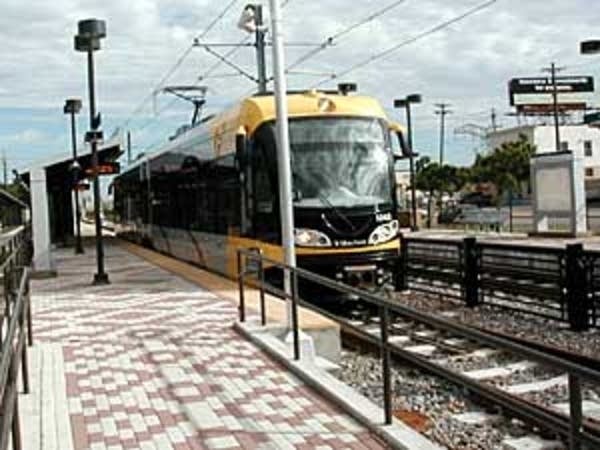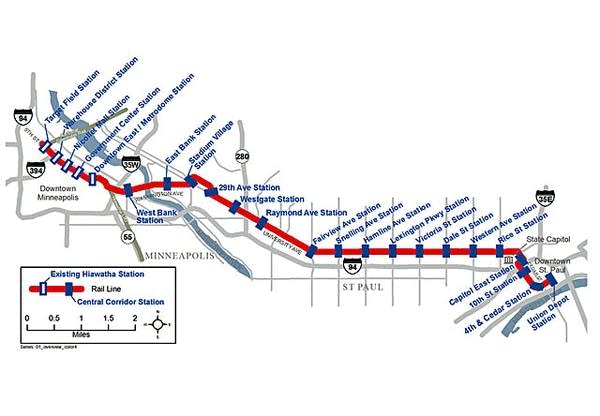Central Corridor's funding fight could send project to the back of the line
Go Deeper.
Create an account or log in to save stories.
Like this?
Thanks for liking this story! We have added it to a list of your favorite stories.

The Central Corridor management committee typically wades through the minutiae of how to build the proposed light rail line. But on Wednesday, Metropolitan Council chairman Peter Bell bowed to reality and carved out time at the front of the regularly scheduled downtown St. Paul meeting to invite people to react to the governor's action.
The $70 million in state borrowing would be the next downpayment in the Metropolitan Council's bid to win federal matching funds that would exceed $400 million.
St. Paul Mayor Chris Coleman asked committee members to join him in approving a resolution which asks the governor and lawmakers to not adjourn the session without finding the money.

Peter Bell, appointed to chair the Met Council by Governor Pawlenty, asked Coleman to include in the resolution that part of the governor's rationale for the veto was the assertion - hotly contested by Democrats - that the overall bonding bill total exceeds state borrowing guidelines.
Turn Up Your Support
MPR News helps you turn down the noise and build shared understanding. Turn up your support for this public resource and keep trusted journalism accessible to all.
"A critical component of that is that it was over the three percent cap and that was a critical concern to the governor," Bell said.
Mayor Coleman, barely restraining his temper, was unyielding.
"I have tried to keep partisan out of this resolution. I've tried very hard not to point blame. If the chair wishes to entertain adding this partisan perspective on this then, we're going to get into a discussion that is not productive right now, nor will serve the ends of getting this corridor built."

The committee passed the Coleman resolution with three Pawlenty administration representatives including Bell, abstaining.
Another DFL'er and Central Corridor management committee member, Minneapolis Mayor R. T. Rybak is worried the governor's veto will delay the project.
Central Corridor staff want to submit a plan including a financial plan for the project to the Federal Transit Administration (FTA) by the end of August.
Each year of delay adds at least $40 million in cost to the $909 million project, according to Mark Fuhrman, the Central Corridor project manager and acknowledged by voices on all sides of the light rail debate as an expert on the machinations of the FTA.
Rybak asked Fuhrman who else is competing against the Twin Cities for federal transit dollars and what happens if delay causes the Central Corridor to lose its place in the waiting line for federal money.
"There are about a dozen other projects nationally that are in our current state of development, preliminary engineering," Fuhrman said.
"Once you get out of the que do you get any credit for having been in the queue or do you start from the bottom again?," Rybak asked.
"The bottom," Fuhrman replied.
Hennepin County Commissioner Peter McLaughlin, another Democrat and a veteran from the Hiawatha light rail project of dealing with the Federal Transit Administration rules offered committee members what he called a cautionary tale.
McLaughlin's point was it's unwise to assume political pressure from influential members of Congress will ultimately preserve federal funding for Central Corridor even if state officials can't resolve funding disputes.
McLaughlin's example was the bombshell delivered recently by the FTA when it declined to fund the Dulles airport light rail line, a Washington, D.C.-area project supported by powerful members of Congress.
"If you find yourself running afoul of their guidelines you will get whacked," McLaughlin said.
One option for breathing life back into the Central Corridor project is for lawmakers to craft another bonding bill that finds money for light rail and some of the Gov. Pawlenty's favored projects and place it inside the budget bill.
But the governor's favorites are opposed by some of the DFL'ers in control of the House and Senate.





